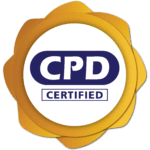



Have you been looking for a Food Safety course in Health and Social Care? sadly, you have not been successful in locating the ideal one for your requirements. There is no need to look any further! A qualified professional team collaborated to build our excellent Health and Social Care Food Safety course. The Food Safety in Health and Social Care course teaches vital skills and information that will help with child care.
At the end of this Food Safety in Health and Social Care course you will participate in the quiz competitions which is going to help you to overcome the error learning.
Food Safety and Hygiene
Food safety is concerned with how food is handled, stored, and prepared in order to avoid illness and ensure that our food has enough nutrients for us to maintain a balanced diet. Unsafe food and drink have been exposed to dirt and bacteria, and might even be rotten, which can cause illnesses or diseases such as diarrhoea, meningitis, and others.
These illnesses may make individuals severely sick or even kill them. People who are weak and have difficulties working or concentrating at school. Some of these illnesses also make it harder for our systems to absorb the nutrients they require to function properly. Unsafe or stale foods will also decay and be of low quality, meaning they will lose nutrients and taste.
Food hygiene is an important aspect of the security of food. It refers to the procedures that involve food directly, such as storage, preparation, and cooking. Good practices in these areas ensure that customers obtain safe and accurately described food.
Food Safety Measures
Preserving clean, separate raw and cooked foods, cooking fully, preserving food at acceptable temperatures, and utilising safe water and food components are the five easy keys to safe and healthy eating.
Make use of safe water and ingredients: Apply water that is secure or have it treated to make it protected. pick meals that are fresh and healthy; pick goods that were handled for security, including heavily processed milk; Wash fruits and vegetables, particularly when they will be consumed raw. Food that has reached its expiration date should be consumed.
Maintain clean hands, utensils, and surfaces: Clean the hands prior to contacting food and regularly throughout food preparation; wash your arms after visiting the toilet; cleanse all food-related areas and equipment; maintain insects, rodents, and other creatures away from the cooking area.
Cook food thoroughly: Cook all foods carefully, especially animal products, eggs, and shellfish bring soups and stews to a boil. Check meat and poultry juices to make sure that they're clean and not pink; completely reheat prepared dishes.
Maintain food at acceptable temperatures: Cooked food should not be left at room temp for longer than 2 hours; any prepared food that is perishable should be refrigerated instantly. Below 5°C). Before serving, keep prepared food blazing hot (above 60°C). Do not keep food in the refrigerator for an extended period of time; do not defrost foods that are frozen at ambient temperature.
Separate Raw from Cooked Food: Separate raw meat, poultry, and fish from all other foodstuffs; use distinct tools and instruments for handling raw foods, such as knives and cutting boards. Food should be stored in a container to avoid contact between raw and cooked items.
Learning Outcomes
The learning outcomes of the Level 2 Award in Food Safety in Health and Social Care and Early Years and Childcare Settings include:
-
- Understanding of the principles of Food Hygiene and Safety
- Knowledge of different types of Food Hazards
- Understanding of the legal requirements and regulations surrounding Food Safety
- Improved Food Safety Practices
- Increased confidence and knowledge
Who is the Food Safety in Health and Social Care course for?
This Level 2 Award in Food Safety in Health and Social Care and Early Years and Childcare Settings course is ideal for anyone preparing for a new role or working in a role that involves handling food safely and supporting an individual with their nutrition and hydration needs.
Reason For Choosing Our Food Safety in Health and Social Care Course?
-
- The course is self-paced and accessible from anywhere.
- High-quality study resources that are simple to understand.
- Experts in the industry created the course.
- After each module, an MCQ quiz will test your knowledge.
- Assessment results are generated automatically and instantly.
- Support is available around the clock by live chat, phone call, or email.
- You will receive a free PDF certificate as soon as you finish the course.
Requirements for Admission
This Food Safety in Health and Social Care course has no requirements because it does not need any advanced knowledge or abilities. Students who want to take this course must complete the following requirements:
-
- Good proficiency in the English language
- Must be energetic and self-driven
- Basic computer knowledge
- A minimum of 16 years of age is needed
Assessment Procedure
You will get automated MCQ quizzes after finishing each module of the Teaching Assistant. To go to the next module, you must finish the quiz activity and score at least 60%. You will be eligible to obtain certification once you have completed all of the courses in this manner.
Certification
Unified Course will deliver you a Certificate of Completion once you complete this MCQ exam. It will serve as documentation of your considerable professional progress. The certificate is in PDF format and may be downloaded for free. On request, a printed version is also available. It will also be sent to you through courier for £13.99.
Summary
Our Food Safety in Health and Social Care course is mainly for those people who want to engage with children. For parents to professional jobseekers, anyone can study this Food Safety in Health and Social Care. After completing this Food Safety in Health and Social Care course, you will gain lots of useful skills that are going to light up your career, and you can update your CV by showing our certificate that you have earned.
Our Skills for Food Safety in Health and Social Care course is designed by a Unified expert team. They built into the course curriculum strongly and informatively. So that, you can easily understand and learn quickly.
Curriculum
-
- Module 01: Principles of Food Safety When Providing Food and Drink for Individuals 01:00:00
Price
Study Method
Online
Free Certificate
CPD Certified
Duration
60 minutes




